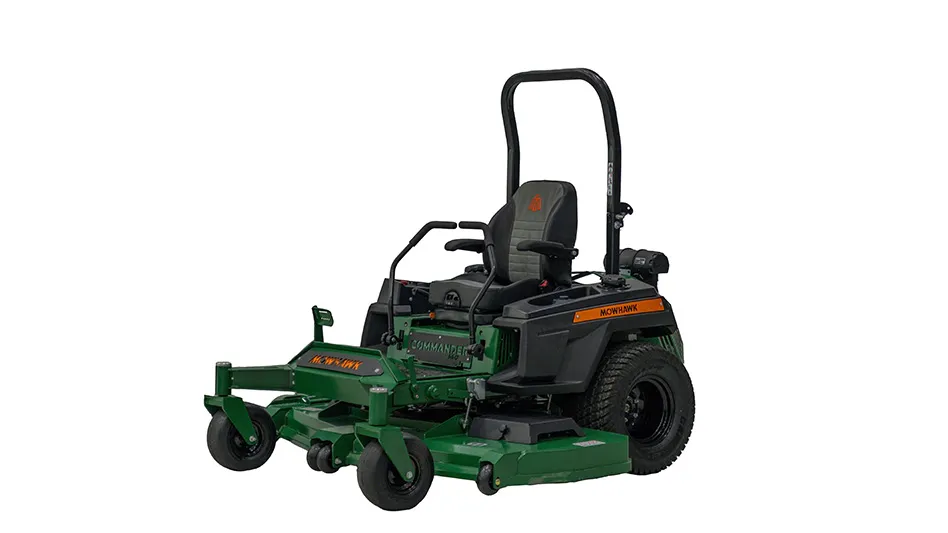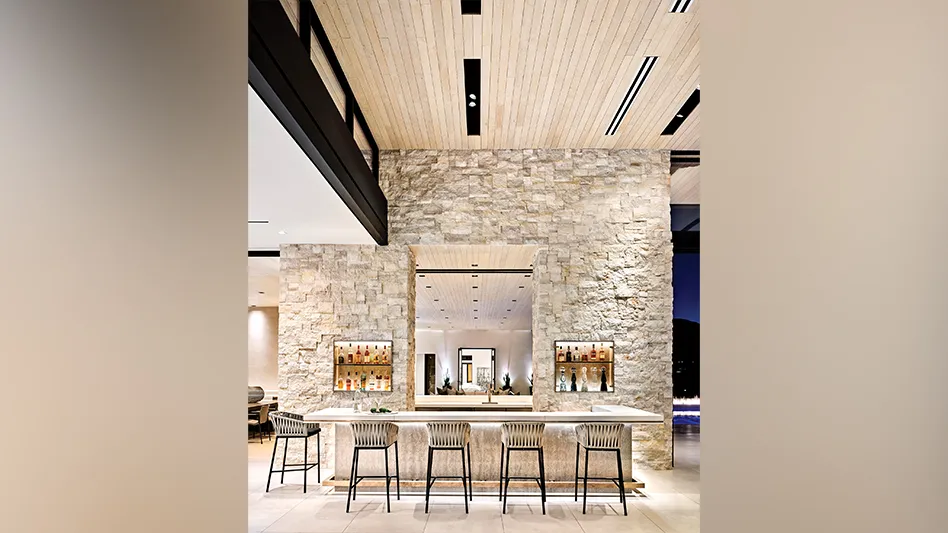
.jpg)
For as much as 10 percent of the business Grounds Maintenance Services in Brookfield, Wisconsin, does each year, owner Todd Ruedt never gets paid. Yet that $110,000 a year isn’t a loss for Ruedt’s residential and commercial design, installation and maintenance company. Rather, he earns credits – or trade dollars – through the barter exchange he belongs to.
Ruedt isn’t the only landscaping business owner discovering the power of barter. Signing up for a barter exchange can help landscape companies fill gaps in their schedules, move excess inventory, attract new customers and create a new source of income that can be used for business expenses ranging from equipment repairs to advertising.
“As a business owner in this economy, you have to be looking at everything to increase your business and productivity. This is another extension of business you can use to grow your company,” Ruedt says.
The most basic form of bartering involves an equal trade in which one good or service is swapped for another, generally without any cash exchanging hands. This process is sometimes referred to as “direct trading.”
In recent years, bartering has become a more advanced proposition through barter exchanges, where members pay a commission fee to obtain goods or services.
How it works. One of the biggest benefits of a barter exchange is that you don’t have to purchase a good or service directly from the company you are doing work for.
When Ruedt lists landscaping services for trade through his barter exchange, anyone interested in those services can contact his company directly to purchase that service. Once the service is completed, Ruedt’s company earns trade dollars for the fair market value of the sale. Ruedt can then spend those trade dollars as he wishes for other goods and services available on the exchange. Members get a balance statement every month or can view their accounts and authorize transactions online at any time.
Finding the right fit. Barter exchanges may have a physical location, but many now conduct business solely online. Most barter exchanges charge a one-time membership fee (though some online exchanges waive that), monthly account maintenance fees, and commissions on each transaction.
Barter exchanges are available locally, regionally, and nationally. If you find an exchange you’re interested in, check it out on the Better Business Bureau website, talk to current members, or find out if the exchange belongs to the National Association of Trade Exchanges, International Reciprocal Trade Association, or The International Barter Alliance, all recognized industry organizations.
Smart spending. One of the biggest challenges of using a barter exchange is making certain you actually spend the trade dollars you accumulate.
Brian Shelton, owner of Commercial Landscape Management Company in Lyons, Ill., estimates that 5 to 10 percent of his business comes from bartering – an average of $80,000 per year. Shelton says it can be difficult to find the right goods and services to spend trade dollars on.
“Originally we were doing it and we didn’t put enough effort into recycling the funds we were making,” Shelton says. “Once we put the effort into it, we found ways to spend the money we earned. You can’t take it out like cash so you have to spend it.”
That’s also why he limits how much work his company does through the barter exchange. “There’s more business available through trade than we’re actually willing to do,” Shelton says. “We keep it on a budget so we don’t do too much more than we can actually use in a year.”
Another reason to balance cash work with trade work is because you still have to pay taxes on your barter earnings – and you can’t remove trade dollars from your account to pay for that.
Shelton says the majority of his company’s trade dollars go toward business purchases including vehicle and equipment repairs, office supplies, plants or mulch from local suppliers and even helping employees attend trade shows.
Although many companies focus on spending trade dollars on business expenses, the funds also can go toward personal use. For instance, barter exchange members might use funds to purchase meals, fitness equipment, or even family vacations. If trade funds are spent on personal items, those transactions are subject to federal income tax.
“I’ve spent years figuring out how to spend what we earn through the barter network,” Ruedt says. “I’ve been able to spend 95 percent on business and only about 5 percent on personal. Sometimes I even struggle to find ways to not spend it on our business too quickly.”
Ruedt’s company uses trade dollars to purchase a variety of products and services, including signage, lettering for trucks and shirts for employees. It also allowed his company to undertake a massive advertising campaign it didn’t have the cash flow to tackle.
The barter exchange Ruedt belongs to has more than 20,000 members, which makes it difficult to figure out who to do business with. That’s where brokers come in. Brokers get to know the business members and help them earn and spend trade dollars.
“I talk to my broker probably two or three times a week,” Ruedt says. “My broker helps me figure out the best person to work with area-wise and dollar-wise. They’re an intricate part of the system – the key piece of the puzzle that makes barter happen.”
Although both Shelton and Ruedt stress that bartering is only one part of their business, it has become an integral one. “Now I can buy things I was paying cash for through the barter system and keep cash in my pocket,” Ruedt says.
And that’s a win for any business.
The author is a freelancer based in Lincoln, Ill.
Learn more. Interested in joining a barter exchange but don’t know where to begin? Barter exchanges are available locally, regionally, and nationally. A few options:
International Monetary System (IMS) (imsbarter.com) is the largest independent trade exchange in North America. IMS Barter operates in 53 metro markets and boasts more than 16,000 members.
ITEX (itex.com) has 90 franchises and licensees and 23,500 member businesses, with reported transactions reaching $140 million per year.
BizXchange (bizx.com) works with more than 2,000 companies and reports $50 million worth of transactions for goods and services each year.
Regional exchanges abound. A sampling: International Barter Exchange (ibebarter.com) serves Southwest Florida. Southern Barter Exchange (southernbarter.com) is located in Arkansas. And Barter Systems, Inc. (bartersys.com) caters to Maryland, Virginia, and Washington DC. Many regional exchanges have reciprocal relationships with other exchanges to expand their network across the country.
To find a reputable exchange, look for members of the National Association of Trade Exchanges, International Reciprocal Trade Association, or The International Barter Alliance, all recognized industry organizations.





